UK pubs and restaurants told to shut in virus fight
Cafes, pubs and restaurants must close from Friday night - except for take-away food - to tackle coronavirus, Prime Minister Boris Johnson has said.
All the UK's nightclubs, theatres, cinemas, gyms and leisure centres have also been told to close "as soon as they reasonably can".
Mr Johnson said the situation would be reviewed each month.
Meanwhile, the government said it will pay 80% of wages for employees who are not able to work, up to £2,500 a month.
The announcement about closures follows similar measures taken in other countries - including in Ireland, where pubs and bars were asked to close from last Sunday.
There have been 167 deaths in England from the coronavirus outbreak, as well as six in Scotland, three in Wales and one in Northern Ireland.
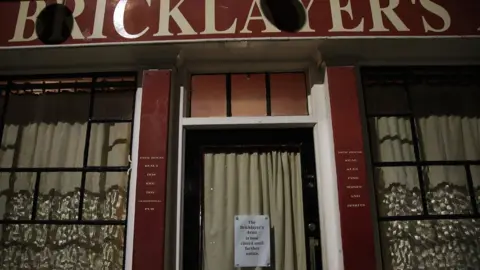 Andrew Redington/Getty Images
Andrew Redington/Getty Images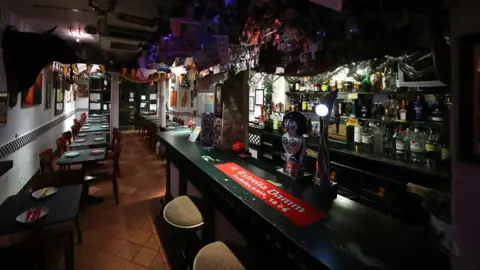 Warren Little/Getty Images
Warren Little/Getty ImagesSpeaking at a daily Downing Street press briefing, Mr Johnson said the measures would be enforced "strictly" and that licensing arrangements would make doing so "relatively simple".
He urged people not to go out on Friday night ahead of the closures, stressing: "For now, at least physically, we need to keep people apart."
The prime minister added: "The more effectively we follow the advice we are given, the faster this country will stage both a medical and an economic recovery in full."

- A SIMPLE GUIDE: What are the symptoms?
- GETTING READY: How prepared is the UK?
- MAPS AND CHARTS: Visual guide to the outbreak
- PUBLIC TRANSPORT: What's the risk?

Speaking at the same briefing, Chancellor Rishi Sunak said the new measures to help out-of-work employees were "unprecedented".
He appealed to employers to stand by their workers during the coronavirus crisis, in the wake of many firms warning of collapse.
England's deputy chief medical officer, Dr Jenny Harries, told reporters at the briefing that the government was not advising people against going outside.
"We are saying, if you are going to go outside, go in a way that reduces your social contact," she said.
In a separate televised address, Scotland's First Minister Nicola Sturgeon also asked all restaurants, cafes, pubs and cinemas to close.
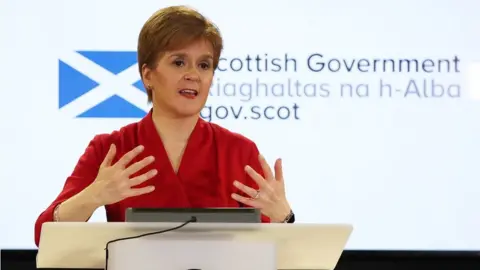 Getty Images
Getty ImagesFirst Minister of Northern Ireland Arlene Foster said the measures are "for the community's protection", while Wales' First Minister Mark Drakeford said the move was "the right thing to do".
The latest announcement came after Mr Johnson said on Thursday that the UK could "turn the tide" on the coronavirus outbreak within 12 weeks.
Most UK schools closed their doors to a majority of pupils indefinitely on Friday, in an effort to stem the spread of the virus.
But many will reopen on Monday with a skeleton staff to accommodate the children of "key workers".
Pupils whose exams were cancelled due to the coronavirus epidemic will be given grades estimated by their teachers, the government has said.

Who are "key workers"?
The full list includes:
- Frontline health workers such as doctors and nurses
- Some teachers and social workers
- Workers in key public services including those essential to the justice system, religious staff and public service journalists
- Local and national government workers deemed crucial to delivering essential public services
- Workers involved in food production processing, distribution, sale and delivery
- Public safety workers including police, armed forces personnel, firefighters and prison staff
- Essential air, water, road and rail transport workers
- Utilities, communication and financial services staff, including postal workers and waste disposal workers

Mr Johnson reiterated on Friday that the government does not want to "immobilise the Tube or our major transport networks", which he said were "too important for the delivery of crucial public services".
Mayor of London Sadiq Khan asked people in the capital not to use public transport "unless genuinely essential".
"If you ignore this advice people will die as a result," he said.
The deputy mayor of London for transport tweeted a video of new announcements on the tube reinforcing the message.
Allow X content?

The government's decision to tell pubs, restaurants and other public places to close was welcomed by former Health Secretary Jeremy Hunt, who previously criticised the government's response to the outbreak.
Allow X content?

And Liberal Democrat MP Daisy Cooper has already taken advantage of the take-away pints offered by her local pub.
Allow X content?

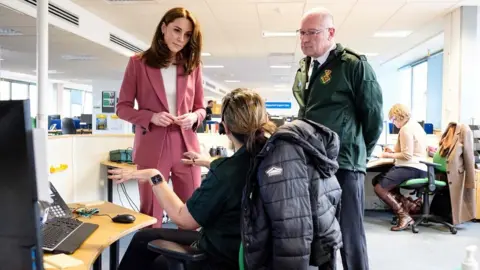 Getty Images
Getty ImagesIn other key UK developments:
- Speaking alongside the PM on Friday, Dr Jenny Harries insisted the UK has a "perfectly adequate" supply of personal protective equipment (PPE) for frontline staff. She said in the last 36 hours, a completely separate "oversight and supply chain" had been set up to ensure hospitals and other care providers receive the gear they need
- The PM said he plans to chair another meeting with representatives of supermarkets on Saturday amid continuing concern over panic buying
- Social distancing would be needed for "at least half of the year" to stop intensive care units being overwhelmed, according to the government's scientific advisers. The Scientific Advisory Group for Emergencies (Sage) recommended alternating between more and less strict measures for most of a year
- MPs from all the main parties are picking up their stethoscopes and returning to old jobs in health and social care in a bid to help services tackle the coronavirus crisis. It comes after news that around 65,000 retired medics will be asked to return to the NHS to help fight the pandemic.
- Dame Vera Lynn used her 103rd birthday to call on the British public to find "moments of joy" during these "hard times".
- Christmas decorations have been appearing across the country, as people stuck at home try to bring some much-needed joy amid the coronavirus pandemic
- Major supermarkets have announced plans to hire extra staff to cope with increased demand. Tesco is set to employ 20,000 new workers for at least the next 12 weeks; Aldi wants to recruit 9,000 (which will include 4,000 permanent roles); and Asda plans to hire more than 5,000 temporary employees laid off due to Covid-19. Morrisons said it will create 3,500 jobs to expand its home delivery service, while Lidl hopes to recruit 2,500 staff to start work immediately
- In a message to the nation on Thursday, the Queen urged people to come together for the common good.
- Trials of a coronavirus vaccine could begin within the next month, Public Health England has said
- Military leaders have been told by the head of the armed forces to be ready by the middle of next month to help respond to the pandemic, in guidance seen by the BBC
- Train operators across Britain will gradually reduce services from Monday
- National commemoration events to mark the 75th anniversary of VE Day are to be scaled back
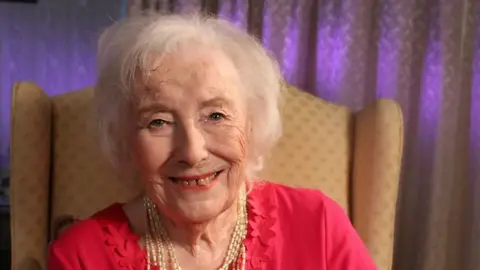 PA Media
PA Media
What happened when the pubs shut in Ireland?
The decision to call last orders at pubs around the UK comes nearly a week after the same measure was announced in the Republic of Ireland - the country which perhaps most shares the UK's love for a good night down the local.
Mass gatherings had already been banned a few days beforehand.
But then videos of crowded pubs full of tourists ignoring the two-metres-apart social distancing advice and literally "touching hands" as they sang Neil Diamond's Sweet Caroline went viral. So the Irish government swiftly announced a compulsory closure until at least 29 March.
The measure was widely welcomed by a relieved public that now knew where it stood on going out for a drink.
Some politicians have said they are aware that not all pubs, particularly in more rural areas, are complying - but inspections by police officers have so far found no evidence of breaches.
Several restaurants in Ireland, while staying closed, are now offering takeaway food - but strictly observing the recommended social distance advice as they do so.
The Irish government's core Covid-19 message that to pull together as a country people will have to spend time apart is certainly currently working.
